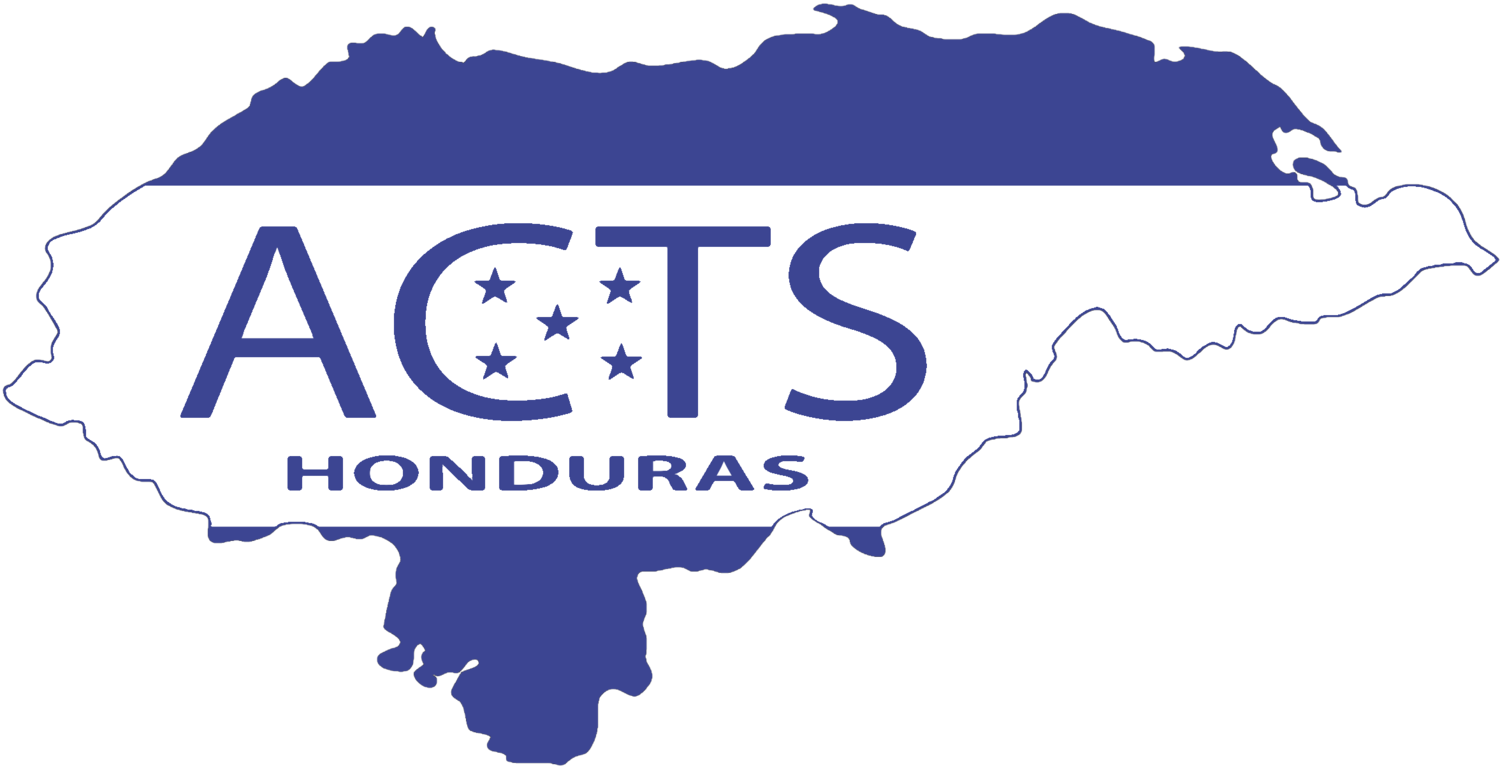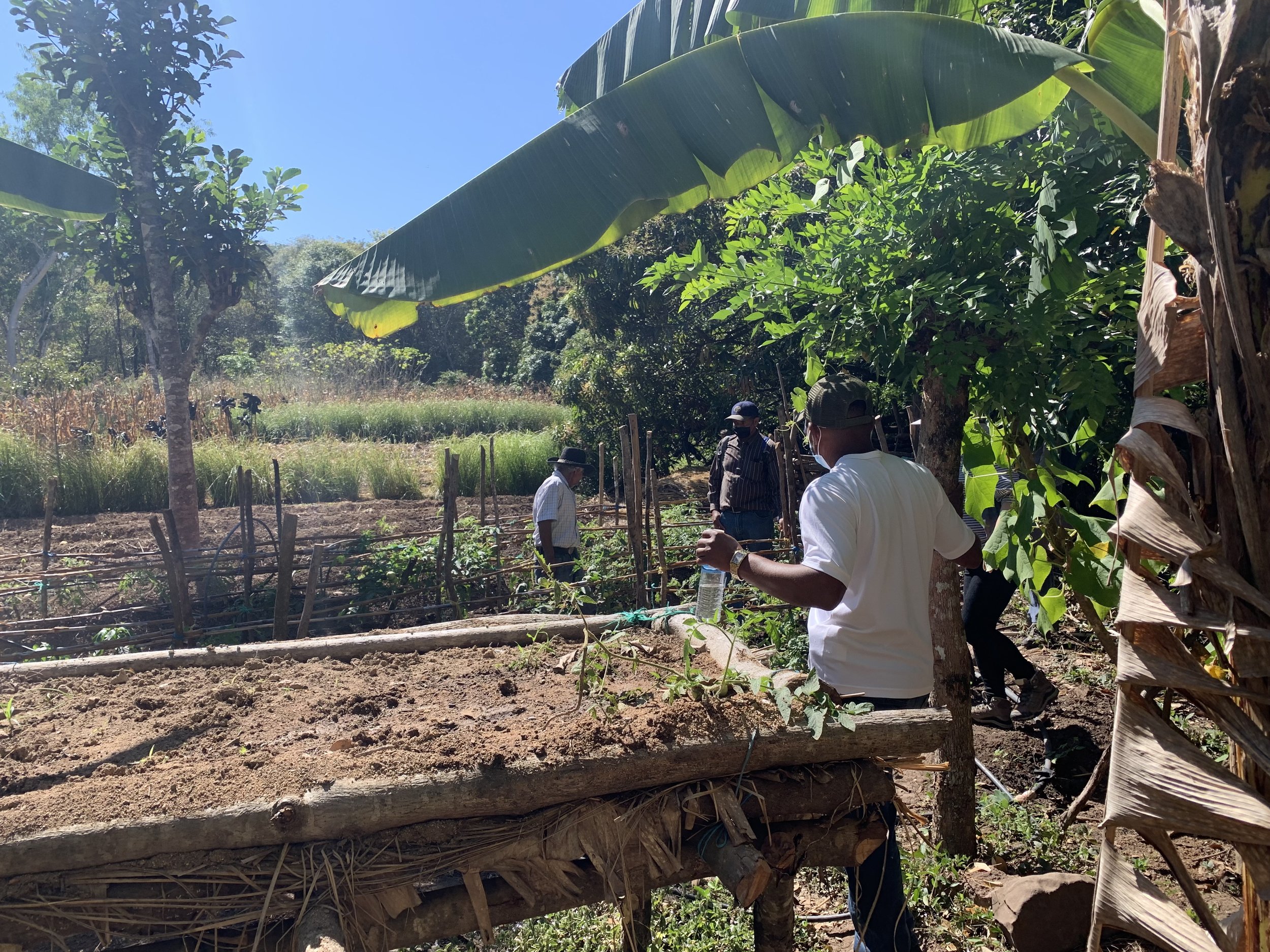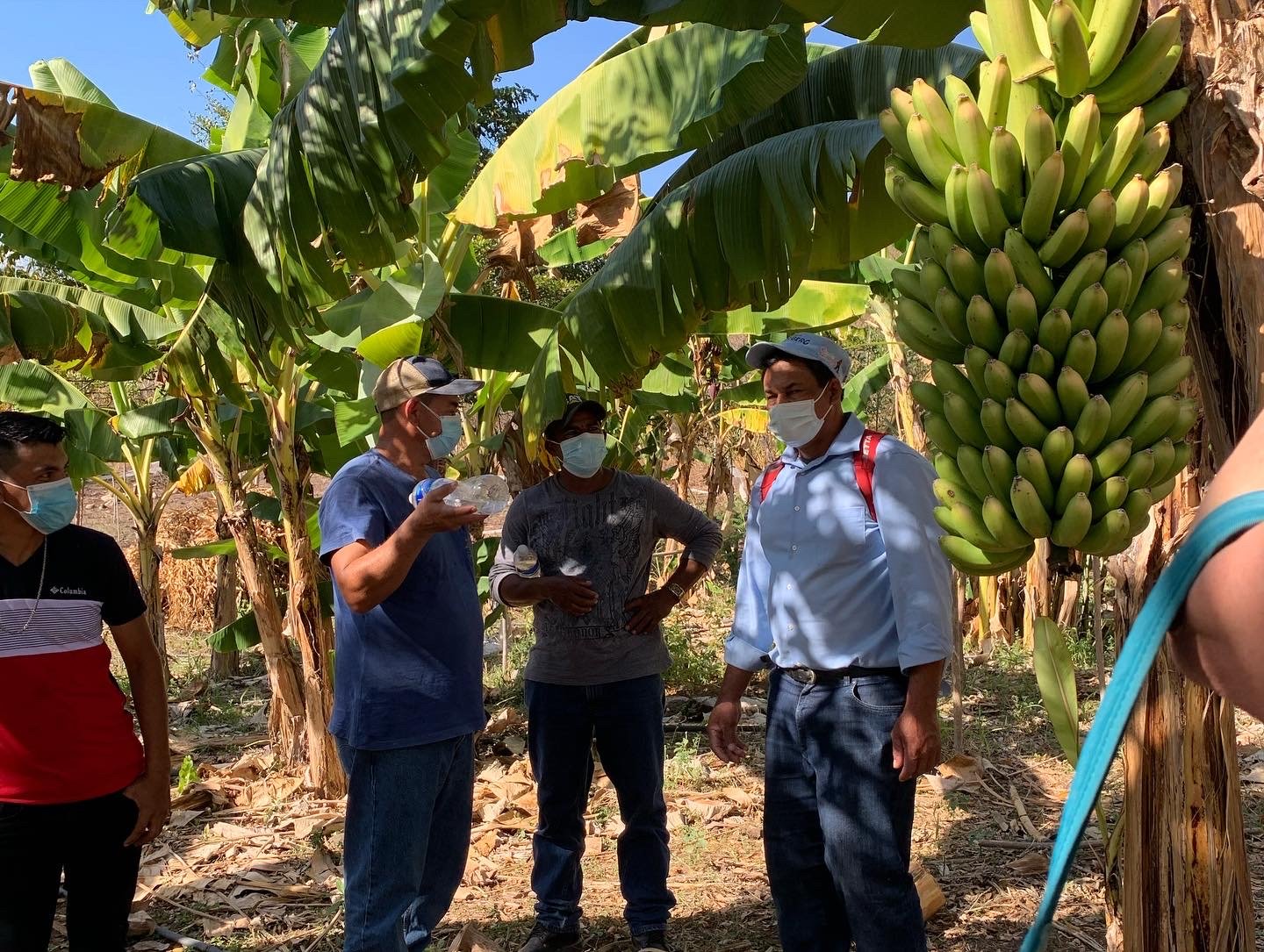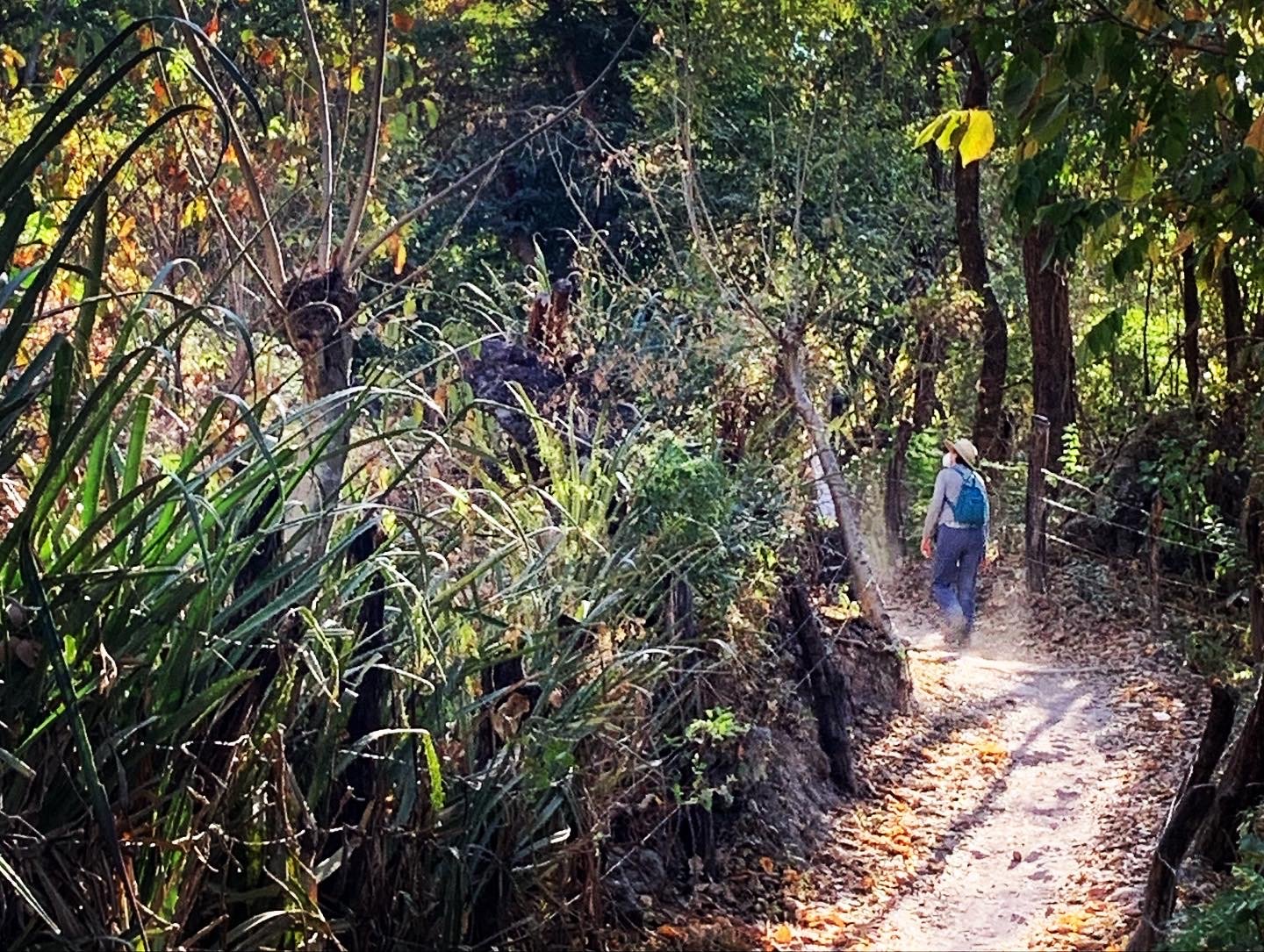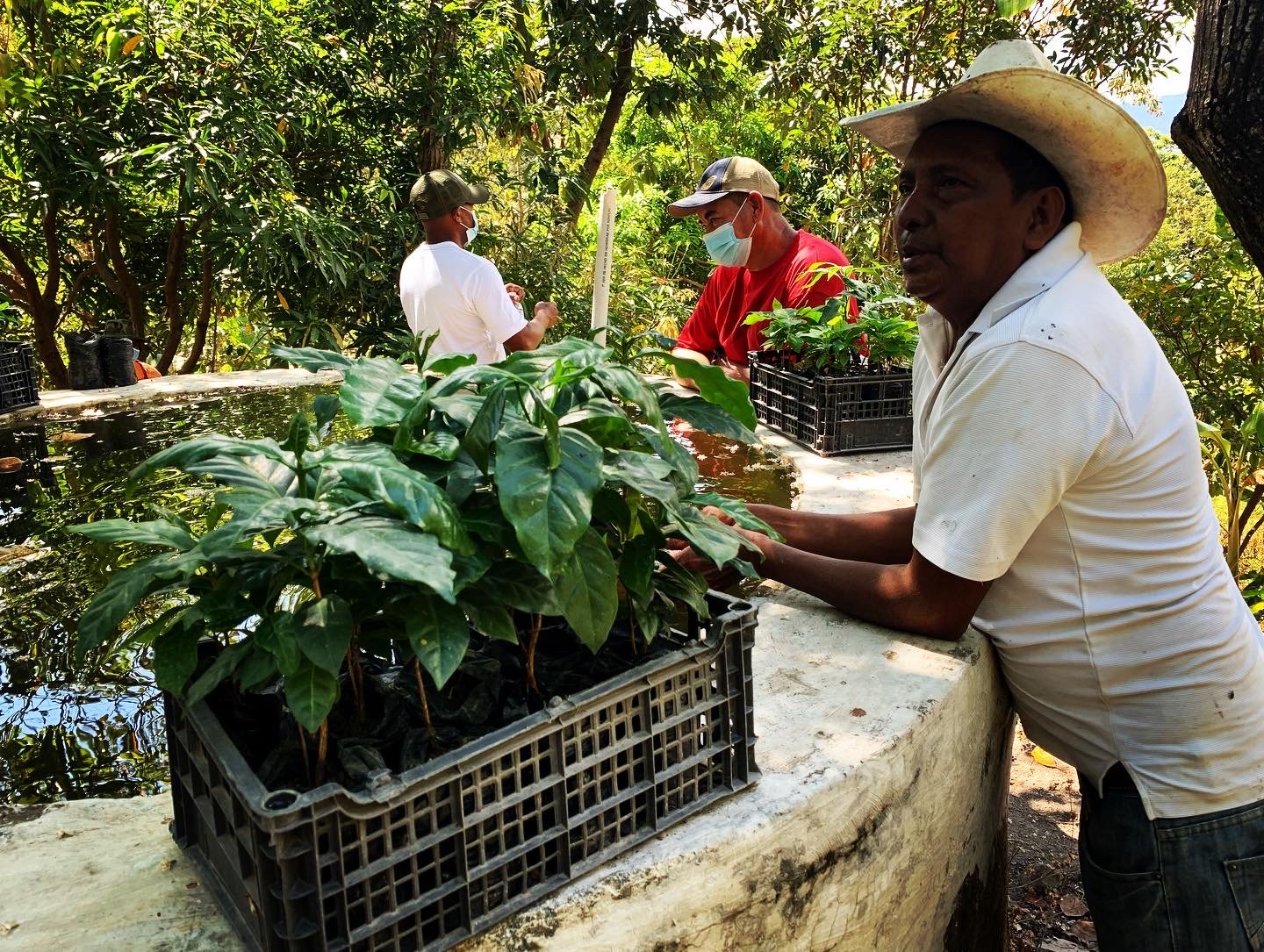January 2022 - Agriculture & The Dry Corridor
Three members from ACTS, Bryce Wilson, Betsy Rybeck Lynd and Rubi Simon (also representing the Hanover Rotary club) traveled to Tegucigalpa as guests of COSECHA, a Honduran NGO that works with farmers on small holdings (fincas) in the Dry Corridor in the south of Honduras. Three farmers from El Rosario joined the group on this trip to a dozen different fincas which have seen the benefits of working with COSECHA. The people who worked with COSECHA over 20 years ago are living a relatively prosperous life and seem empowered to continue to do so, solving their own problems and helping others who are looking for solutions to issues of lack of water, low productivity and food/income insecurity.
The goal was to see if the COSECHA model might be beneficial in the El Rosario community area/region and to potentially use their services in El Rosario and surrounding communities.
COSECHA is a nongovernmental organization of campesinos founded in 1992. Its mission is to advance development through training and experimenting with sustainable agriculture technologies based on the resources available to farm families. COSECHA’s staff includes farmers from the project area.
Their primary objective is to increase the availability and diversity of food for farm families, improve income through the sale of excess production, and protect natural resources in the drought-stricken region of Francisco Morazán. COSECHA has a long history as a recognized leader in sustainable agriculture and water conservation.
The team saw many examples of soil and water conservation; the list of cultivated crops was impressive. The farmers who explained and showed their work to the team were excited to do so, and clearly felt they had benefited from the direct education provided by COSECHA.
ACTS is hoping that we can support COSECHA in working with farmers in El Rosario and surrounding villages. This work could provide a future for the communities who farm for a livelihood, and may also help slow the warming and drying of the region and the planet, bit by bit.
